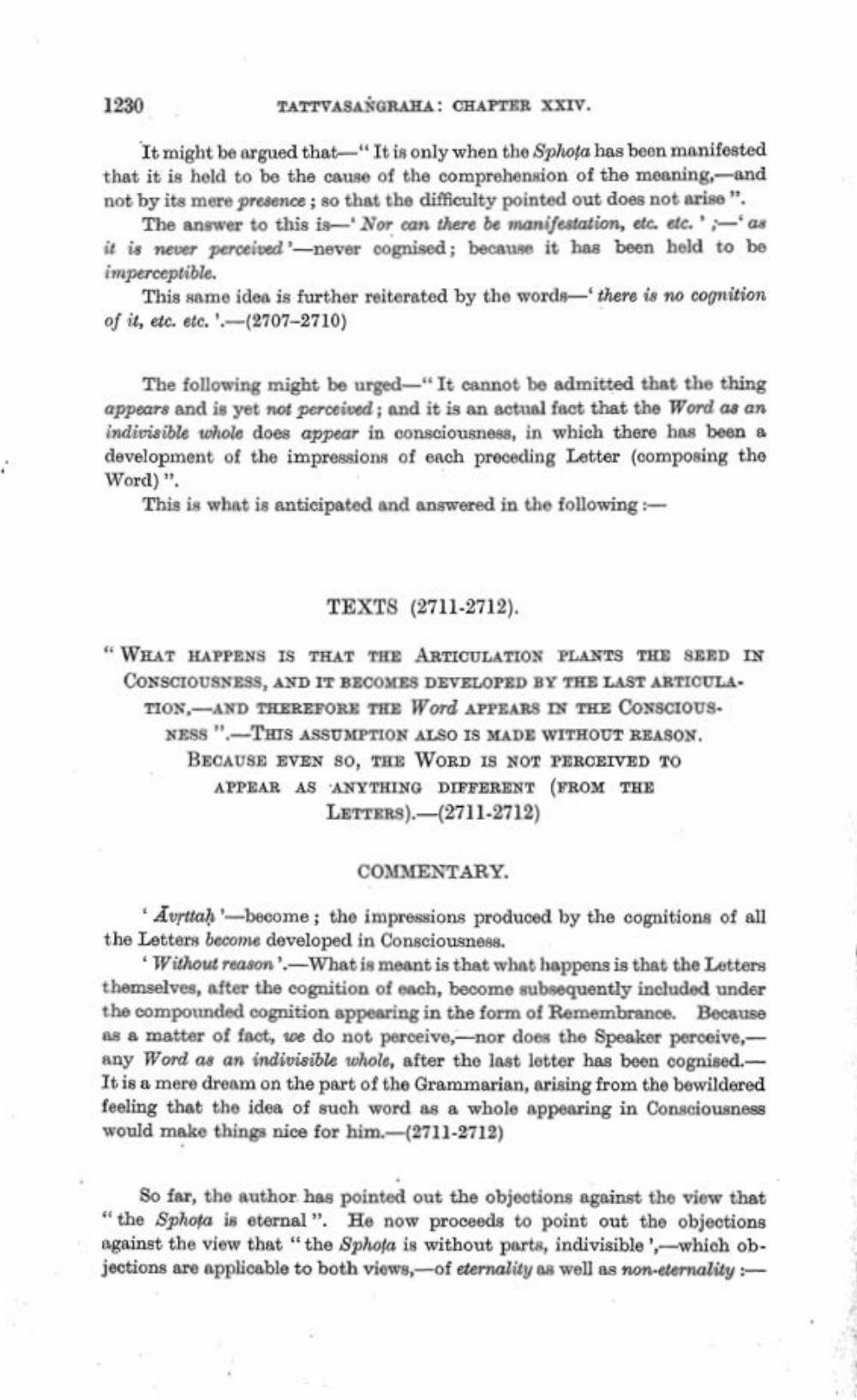________________
1230
TATTVASANGRAHA: CHAPTER XXIV.
It might be argued that "It is only when the Sphota has been manifested that it is held to be the cause of the comprehension of the meaning, -and not by its mere presence; so that the difficulty pointed out does not arise".
The answer to this is 'Nor can there be manifestation, etc. etc., as it is never perceived'-never cognised; because it has been held to be imperceptible.
This same idea is further reiterated by the words—there is no cognition of it, etc. etc. '-(2707-2710)
The following might be urged " It cannot be admitted that the thing appears and is yet not perceived ; and it is an actual fact that the Word as an indivisible whole does appear in consciousness, in which there has been a development of the impressions of each preceding Letter (composing the Word)".
This is what is anticipated and answered in the following
TEXTS (2711-2712).
“ WHAT HAPPENS IS THAT THE ARTICULATION PLANTS THE SEED IN CONSCIOUSNESS, AND IT BECOMES DEVELOPED BY THE LAST ARTICULA. TION, AND THEREFORE THE Word APPEARS IN THE CONSCIOUS. NESS " THIS ASSUMPTION ALSO IS MADE WITHOUT REASON. BECAUSE EVEN SO, THE WORD IS NOT PERCEIVED TO APPEAR AS ANYTHING DIFFERENT FROM THE
LETTERS).—(2711-2712)
COMMENTARY.
Avrttah'-become; the impressions produced by the cognitions of all the Letters become developed in Consciousness.
Without reason'.- What is meant is that what happens is that the Letters themselves, after the cognition of each, become subsequently included under the compounded cognition appearing in the form of Remembrance. Because as a matter of fact, we do not perceive,-nor does the Speaker perceive, any Word as an indivisible whole, after the last letter has been cognised. - It is a mere dream on the part of the Grammarian, arising from the bewildered feeling that the idea of such word as a whole appearing in Consciousness would make things nice for him.-(2711-2712)
So far, the author has pointed out the objections against the view that "the Sphota is eternal". He now proceeds to point out the objections against the view that "the Sphofa is without parts, indivisible',--which objections are applicable to both views,-of eternality as well as non-eternality :




